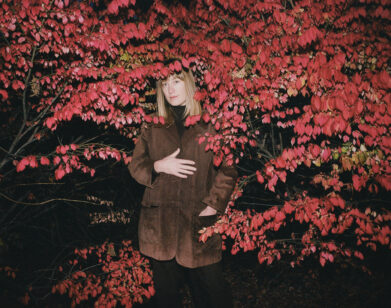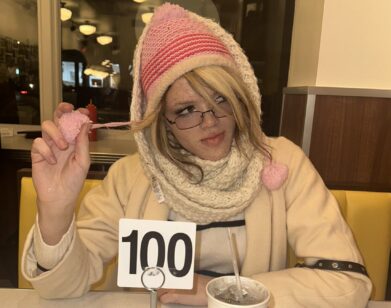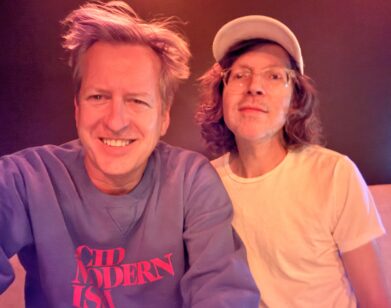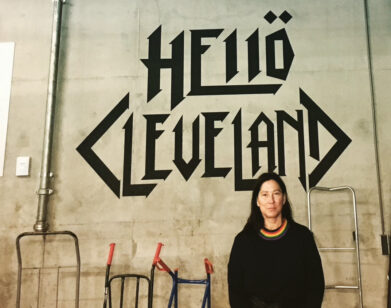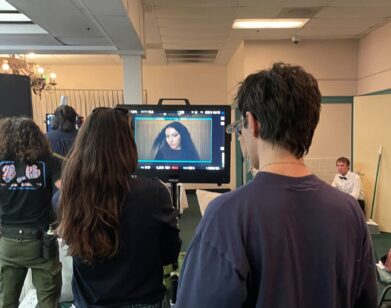Discovery: Arielle Vakni
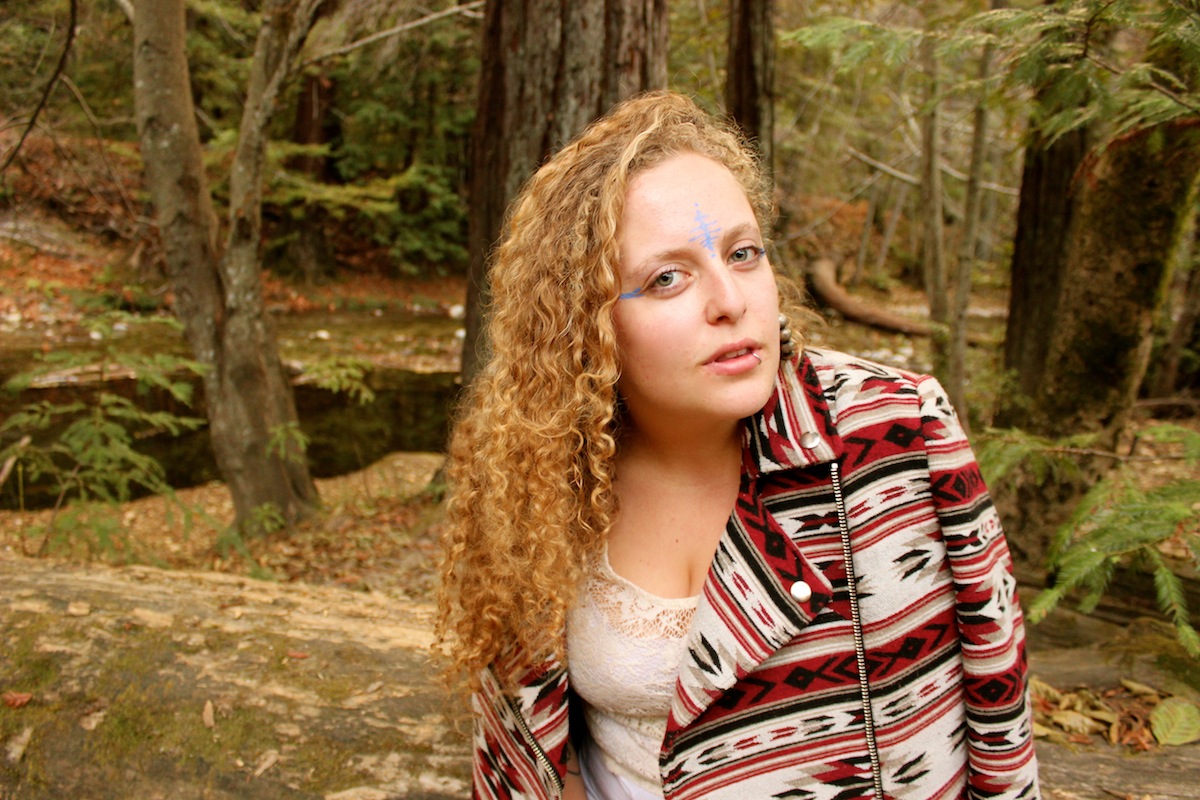
ABOVE: ARIELLE VAKNI. PHOTO COURTESY OF SARAH ROGO
Santa Cruz singer-songwriter Arielle Vakni wrapped January 2014 by partnering with her alma mater, Berklee College of Music, to release a video for her single, “Backwards.” The live music video has garnered 3,000 views in the week since its release— modest numbers by most industry standards, but considering the traffic is credited to charmed whispers and Facebook shares, it is clear that there is an audience for Vakni, and the audience wants an encore.
It helps, too, that the single is pretty stellar. Performed at Boston’s Café 939—an intimate venue with a cushy, living-room aesthetic—”Backwards” opens with syncopated electronic percussion and a viola’s melody. Vakni, with a Lorde-like mane of blonde curls falling over a strapless burgundy dress, sings, “Sliding backwards never felt so right.” Her voice is untethered, soulful, and she jumps from chest to heady falsetto with fluid grace. Her vocal dexterity pays homage to the Joni Mitchells and James Taylors before her.
Self-identifying as an “experimental” folk singer, Vakni and her seven-member band weave electronic orchestrations through tight acoustic melodies. One may recognize Vakni as one half of the indie electronic-folk duo, Skycranes, whose debut dropped in early 2013. Now pursuing a solo career, her 10-song debut album is set for release this April.
Tonight, Vakni is performing at Manhattan’s Pianos. We spoke with her the morning before her New York engagement about musical influences, working with acclaimed musician Patty Larkin, and getting her feet off the ground as a promising up-and-comer.
AGE: 22
HOMETOWN: Santa Cruz, California
CURRENT RESIDENCE: Jamaica Plain, Boston, Massachusetts
BERKLEE COLLEGE AND MUSIC EDUCATION: I feel like I came into Berklee really not knowing very much at all about music as a profession. I couldn’t read music, so honestly I feel like I owe so much to them. Even outside of just learning about the craft, I feel like they really helped me get it together on the business side of things, too. I feel that school is not really for everybody, but I think that there are a lot of people that do really well with music as an academic thing, and I think there are a lot of people that just need to go do it on their own and see what happens.
THE BEST COAST: I feel I’m always going to be a West Coast person, and I definitely do want to live there again, but I have a lot of things that I’m working on here, and I’ve met a lot of great people that I don’t feel ready to leave yet. I mean, home is always gonna be home, but it’s also just the, well, besides the obvious—the weather—I think that things just move a little more slowly there. Here, I feel like people are always pressed for time. I don’t know. Maybe it’s because I’ve associated Boston with my college years and trying to be 100 percent “Go, go, go!” all the time. The West Coast has been a place to just relax and be creative.
“SAVE YOUR BEST” WITH PATTY LARKIN: “Save Your Best” is not really directed at one person in particular, but kind of just the idea of being able to go live your life with yourself and know that there’s somebody that cares about you a lot and you just don’t feel the need to let that take you away from yourself. It was a project that I did through Berklee. They have these visiting artists come and teachers nominate students to be in this semester-long seminar with them, and these visiting artists pick 10 people. And I did that one with [Patty Larkin], and she selected two of us to record a song with her producing. She’s one of the coolest people I’ve ever met.
KNOW WHAT THE AUDIENCE WANTS, EVEN IF THEY DON’T: I feel like the goal is to just make [the audience] recognize something that you are trying to say and be, like, “Hey, I resonate with that. That was pretty cool. That was something; I’d never heard someone do it quite that way before.” Especially with this album and the people that are all putting so much work into it, I think everybody is trying to step outside of what they’re doing musically and we’re just kind of trying to raise some eyebrows.
PLAYING WITH “EXPERIMENTAL” FOLK: Pretty much the way we’ve done every song on this album is I will go and just write it on guitar and vocal, and then we’ll record that, and then Vicente, my producer, will take it and do all his magical things, and we would come up with these songs that were, I mean, singer/songwriter songs—vocal/guitar, some sort of message involved—and then the goal ended up being, “What can we do to make this weird?” We would just sit there and think of ways that we could take out a section or do it this way and put some weird sound on it that you wouldn’t expect, and I feel like that is what makes music so fun is that you don’t have to follow any rules.
SKYCRANES AND “TRIPTYCH”: [Skycranes] was a project with a friend named Patrick O’Brien, who also goes to Berklee. He and I met through his old roommate because Patrick was offering free recording sessions to Berklee singer/songwriters. I came in and did a song and an interview, and he really liked what I was doing, and we decided to start writing together. We were both really interested in folk music and electronic, so we tried to see what we could do to fuse the two, and we made it an album, and we have mostly been trying to push it to sync licensers that can hopefully get it into television and film and things like that. I think we’ll [continue making music], but right now I’ve been focusing on my own thing.
CATCH ARIELLE VAKNI TONIGHT, FRIDAY, FEBRUARY 7 AT MANHATTAN’S PIANOS. FOR MORE ON THE ARTIST, VISIT HER WEBSITE OR FACEBOOK.

